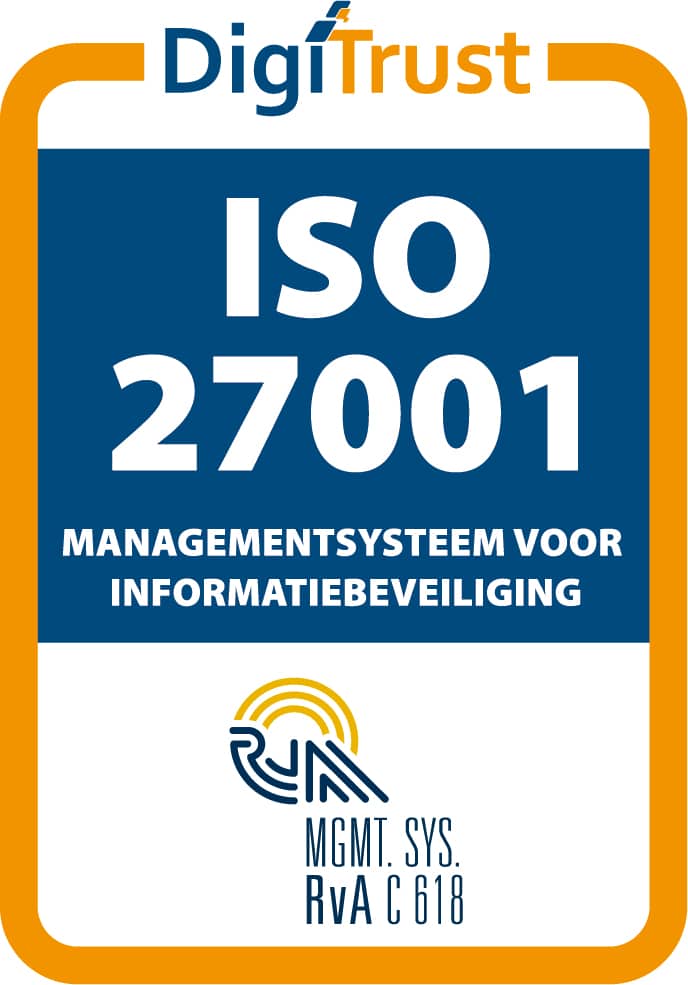Digital signing
With advanced and qualified digital signing, integrity and identity are guaranteed
When you want to digitally sign documents, a digital signature is used for this purpose. This digital signature has two functions.
First, it establishes a person's identity. Second, it ensures integrity and the content of what is digitally signed cannot be changed. Once digitally signed, a certified proof of authenticity is attached to the signed document. Read more about the digital signature.
There are 3 digital signature types in the Netherlands. The ordinary digital signature, the advanced and the qualified. When an advanced digital signature is used, it usually has the same legal value as the wet written signatures. For example, if you want to digitally sign notarial deeds, a qualified digital signature is necessary. The ordinary digital signature has little legal value because the identity is not guaranteed and documents can often still be changed after signing.
Digitally signing documents has many advantages. Not only is it cost-saving (e.g., postage and administration costs), digital signing is also faster and more efficient than handwritten signing. Especially since digital signing software has various alerts and the entire signing process can be monitored in real time. Thus, digital signing users have control over the entire signing process. Read more about benefits of digital signing.
Digital signing of documents requires a third party that not only provides the software for digital signing, but can also provide the documents with proof of authenticity. They need government-issued certificates for this purpose. The advanced or qualified digital signature thus created is legally valid. Read more about the legal validity of digital signatures.
